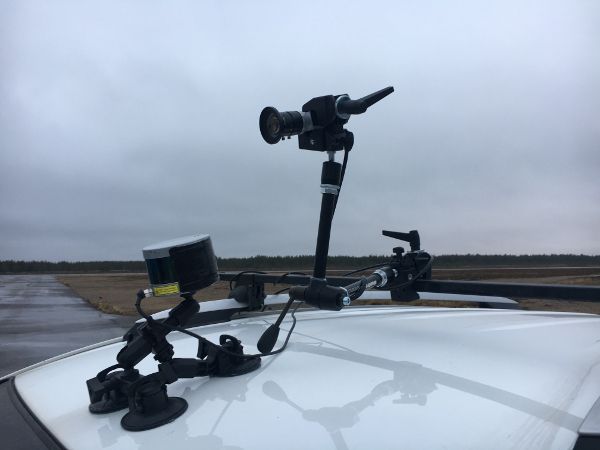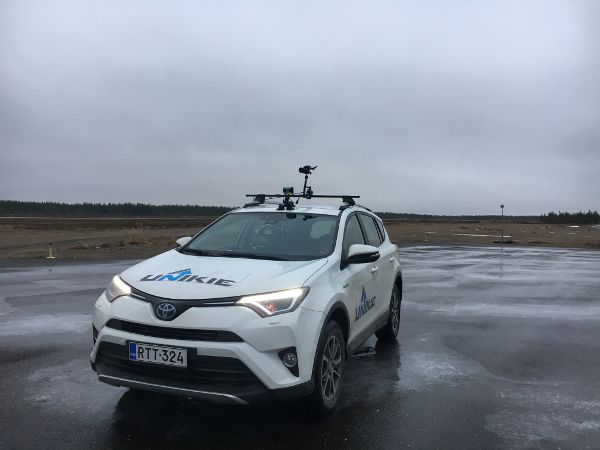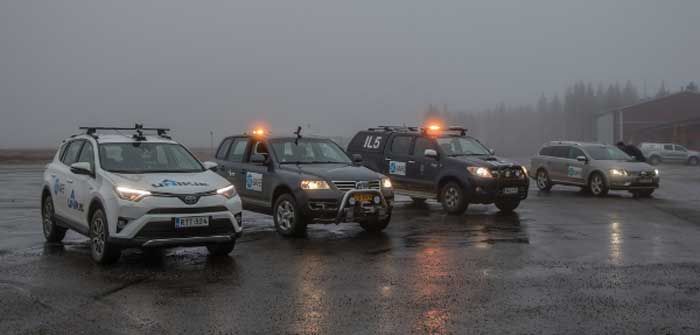The VTT Technical Research Center of Finland is leading a major project that is trialling the use of 5G cellular communications to transmit information that can be used to provide road-weather services, carry out highway maintenance and control self-driving cars.
Financed by the Business Finland public funding agency (formerly Tekes), VTT’s 5G-Safe project is exploring the possibility of using the 5G mobile network to improve road safety in collaboration with partners that include the Finnish Meteorological Institute, Destia, and Unikie.
Due to the speed of next-generation 5G mobile networks and new data transmission systems, vast amounts of sensor, video and radar data can be collected from vehicles and sent in almost real time. Services developed in the course of the 5G-Safe project have been piloted in real-life environments, such as on the Finnish Meteorological Institute’s winter vehicle test track in Sodankylä, Lapland.
The next step for the project partners is to commercialize the new services, with VTT currently planning a follow-up project involving further development of 5G-based vehicle solutions that will also include other European partners.
 The 5G-Safe project is concentrating on three main areas of research:
The 5G-Safe project is concentrating on three main areas of research:
- Local road-weather services, one of the key applications for the data collected by vehicles. For example, in the future, real-time weather information and warnings could be sent directly to drivers’ satellite navigation devices. Some automated weather warnings can already be transmitted via the existing 4G mobile network, and solutions are being introduced gradually. However, transmitting real-time video footage or 3D views between vehicles requires considerably more network capacity, which the new fast 5G networks are capable of handling;
- 5G technology also opens up new possibilities from the perspective of road maintenance. The new technology provides an extremely efficient way to collect crowdsourced information on the condition of roads, which can be used to alert highway operators to a range of issues requiring their attention, such as snow build-up, potholes or fallen trees. Having access to comprehensive and reliable data would enable contractors to identify problems at an earlier stage and to prioritize the most urgent jobs. Issues could be fixed more promptly, increasing road safety;
- New 5G technology can help human drivers behind the wheel, but its impact on self-driving cars could be even more revolutionary. Real-time data can be used to better control self-driving cars and change their behavior on the basis of external observations. VTT’s autonomous car Martti has already trialled these possibilities in terms of detecting, in advance, icy conditions and obstacles on the road, expanding the potential use of self-driving vehicles in areas where challenging weather conditions are a problem.

“Controlling self-driving cars in Finland’s climate requires accurate information on road conditions almost in real time. The new technology makes it possible to collect data from areas beyond the cars’ own sensors, which is extremely important for future self-driving cars, explained VTT’s senior scientist, Tiia Ojanperä. “Our partners have already begun to commercialize these services. However, more extensive commercialization will need to wait until the 5G network is rolled out. The fact that there are already applications and demand for the 5G network is useful for network device manufacturers and operators.”






